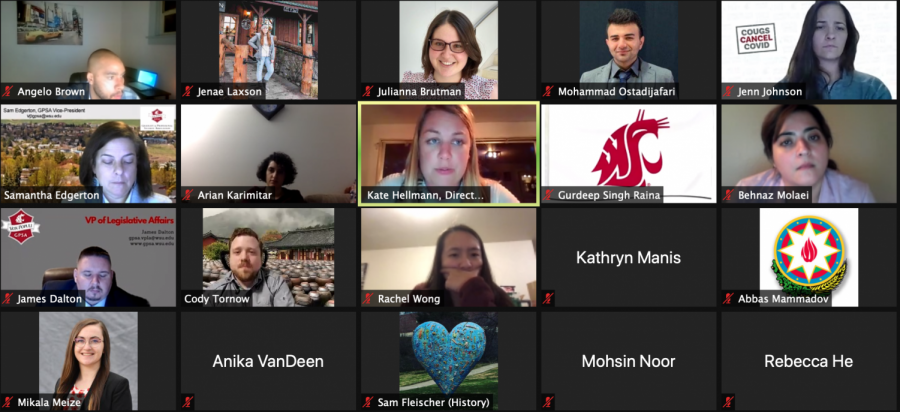GPSA Senators discuss ways to protect international students from possible restrictions
Proposed restrictions for international students could limit their stay in country to two years
Kate Hellmann, director of international student and scholar advising for WSU’s Office of International Programs, said the office is a resource available to all international students who face challenges.
October 12, 2020
A proposal of new national guidelines regarding international students can limit a student’s admission into the country to two years.
“I am concerned, as well, but Washington state has Democrats and Republicans who support international students and scholars,” said Kate Hellmann, director of international student and scholar advising for WSU’s Office of International Programs.
The Office of International Programs is a resource available to all international students who face challenges, such as accessing materials, Hellmann said.
International students who have an I-94 would receive an electronic receipt telling them when they have to leave the country, said Cody Tornow, lead international student advisor for WSU’s Office of International Programs.
“If the government sets the exit date every two years, then you must exit after two years and re-enter,” Tornow said.
This can create problems if someone does not have American citizenship, he said.
Samantha Edgerton, executive vice president and second-year doctoral student in history, said the Executive Order has caused universities to pause their critical race theory training, but WSU is committed to the training.
Measures protecting students from institutional racism should be put in place, said Stephen Bischoff, director of Multicultural Student Services. The Multicultural Student Services attorney generals are evaluating the measures.
“There is a terminology problem, and we are evaluating types of training to incorporate the proper terminology,” he said.
Graduate students who have children need to be supported, said Mikala Meize, chair of international affairs and doctoral candidate in criminal justice and criminology.
“Our healthcare is already expensive on a graduate stipend,” she said. “With dependents, it’s even more.”
Beatrice Caffe, senator of university affairs and masters student in anthropology, asked how not having a spring break will impact graduate students.
Even though spring break is a break from classes, graduate students may use it to research and collect data, said Jenn Johnson, WSU doctoral candidate, GPSA President and Executive Board Chair.
There are four upcoming Professional Development Initiative Events. These are Writing Workshop Series: Goal Setting and Project Management; Navigating Healthcare for Graduate Students; a Leadership Workshop Series; and Works and Wellness Discussion Series: Outliers, said Anika VanDeen, second-year doctoral student in mechanical engineering and professional development initiatives chair.
The next GPSA meeting will occur Oct. 26.










